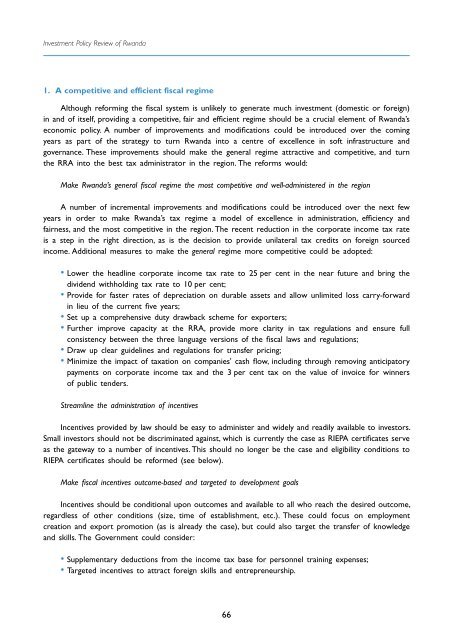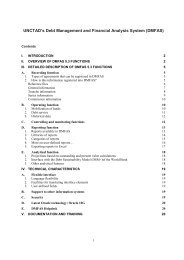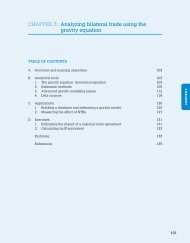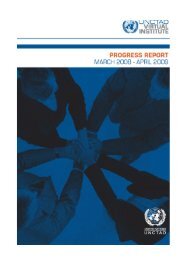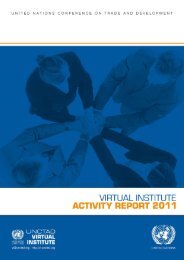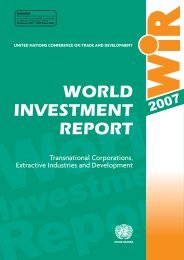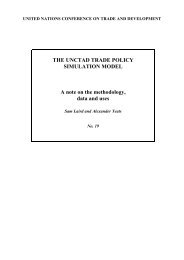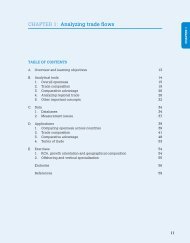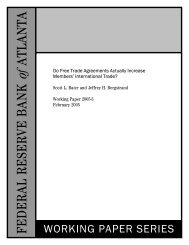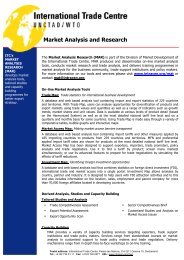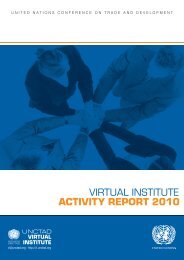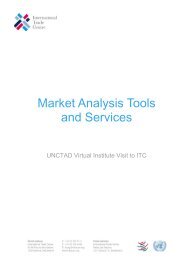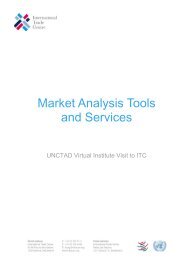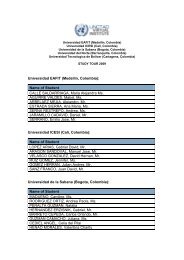Investment Policy Review - Rwanda - UNCTAD Virtual Institute
Investment Policy Review - Rwanda - UNCTAD Virtual Institute
Investment Policy Review - Rwanda - UNCTAD Virtual Institute
You also want an ePaper? Increase the reach of your titles
YUMPU automatically turns print PDFs into web optimized ePapers that Google loves.
<strong>Investment</strong> <strong>Policy</strong> <strong>Review</strong> of <strong>Rwanda</strong><br />
1. A competitive and efficient fiscal regime<br />
Although reforming the fiscal system is unlikely to generate much investment (domestic or foreign)<br />
in and of itself, providing a competitive, fair and efficient regime should be a crucial element of <strong>Rwanda</strong>’s<br />
economic policy. A number of improvements and modifications could be introduced over the coming<br />
years as part of the strategy to turn <strong>Rwanda</strong> into a centre of excellence in soft infrastructure and<br />
governance. These improvements should make the general regime attractive and competitive, and turn<br />
the RRA into the best tax administrator in the region. The reforms would:<br />
Make <strong>Rwanda</strong>’s general fiscal regime the most competitive and well-administered in the region<br />
A number of incremental improvements and modifications could be introduced over the next few<br />
years in order to make <strong>Rwanda</strong>’s tax regime a model of excellence in administration, efficiency and<br />
fairness, and the most competitive in the region. The recent reduction in the corporate income tax rate<br />
is a step in the right direction, as is the decision to provide unilateral tax credits on foreign sourced<br />
income. Additional measures to make the general regime more competitive could be adopted:<br />
•<br />
Lower the headline corporate income tax rate to 25 per cent in the near future and bring the<br />
dividend withholding tax rate to 10 per cent;<br />
Provide for faster rates of depreciation on durable assets and allow unlimited loss carry-forward<br />
in lieu of the current five years;<br />
Set up a comprehensive duty drawback scheme for exporters;<br />
Further improve capacity at the RRA, provide more clarity in tax regulations and ensure full<br />
consistency between the three language versions of the fiscal laws and regulations;<br />
Draw up clear guidelines and regulations for transfer pricing;<br />
Minimize the impact of taxation on companies' cash flow, including through removing anticipatory<br />
payments on corporate income tax and the 3 per cent tax on the value of invoice for winners<br />
of public tenders.<br />
•<br />
•<br />
•<br />
•<br />
•<br />
Streamline the administration of incentives<br />
Incentives provided by law should be easy to administer and widely and readily available to investors.<br />
Small investors should not be discriminated against, which is currently the case as RIEPA certificates serve<br />
as the gateway to a number of incentives. This should no longer be the case and eligibility conditions to<br />
RIEPA certificates should be reformed (see below).<br />
Make fiscal incentives outcome-based and targeted to development goals<br />
Incentives should be conditional upon outcomes and available to all who reach the desired outcome,<br />
regardless of other conditions (size, time of establishment, etc.). These could focus on employment<br />
creation and export promotion (as is already the case), but could also target the transfer of knowledge<br />
and skills. The Government could consider:<br />
•<br />
•<br />
Supplementary deductions from the income tax base for personnel training expenses;<br />
Targeted incentives to attract foreign skills and entrepreneurship.<br />
66


